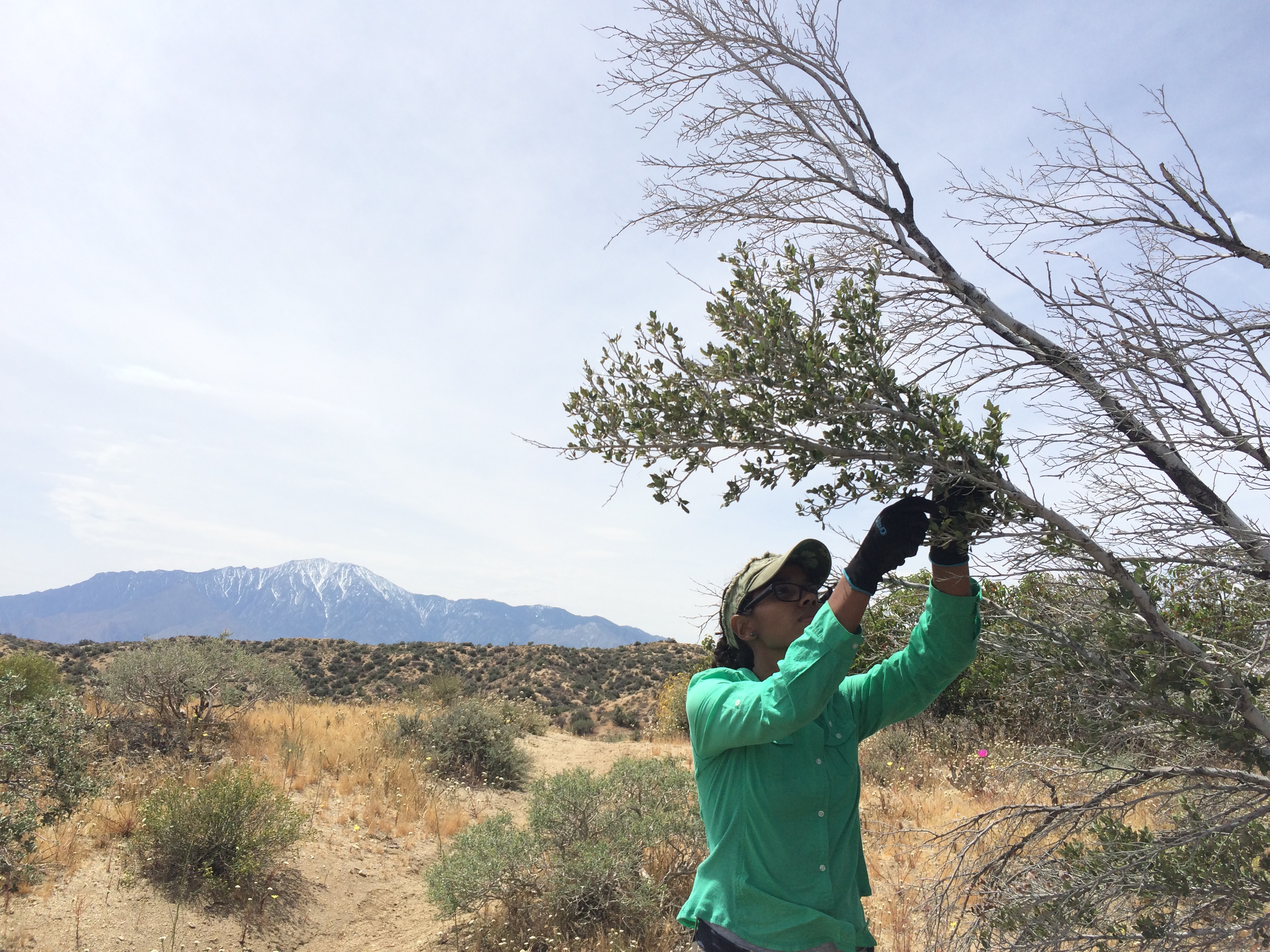
The Fall 2019 Biology Seminar Series continues with Eleinis Ávila-Lovera's talk, "Comparative Functional Ecology of photosynthetic stems and leaves: Key takeaways from arid ecosystems."
Eleinis Ávila-Lovera
Chapman University
Comparative Functional Ecology of photosynthetic stems and leaves: Key takeaways from arid ecosystems
In the field of plant physiological ecology, people are usually interested in how leaf carbon and water dynamics determine whole plant performance, including growth and reproduction, with the stem being the organ responsible for water transport and mechanical support. In many plants from arid and semi-arid ecosystems, in both temperate and tropical regions, green photosynthetic stems appear to have evolved as a response to water shortage at least during one period of the year. My work addresses an important idea within the topic of photosynthetic stem physiology, by evaluating physiological traits in plants with photosynthetic stems I want to determine how similar they are to leaves, understand the advantages of having photosynthetic stems, and the differences between two syndromes (green and fleshy) of photosynthetic stems. I measured physiological and functional traits of species with photosynthetic stems from five arid ecosystems in southern California and Baja California peninsula. Most of the work was done during the 4-year long severe drought that California experienced. The results of this work can allow us to predict plant responses to future droughts.
Tuesday, November 5th
BioScience 113
11:45 a.m.
